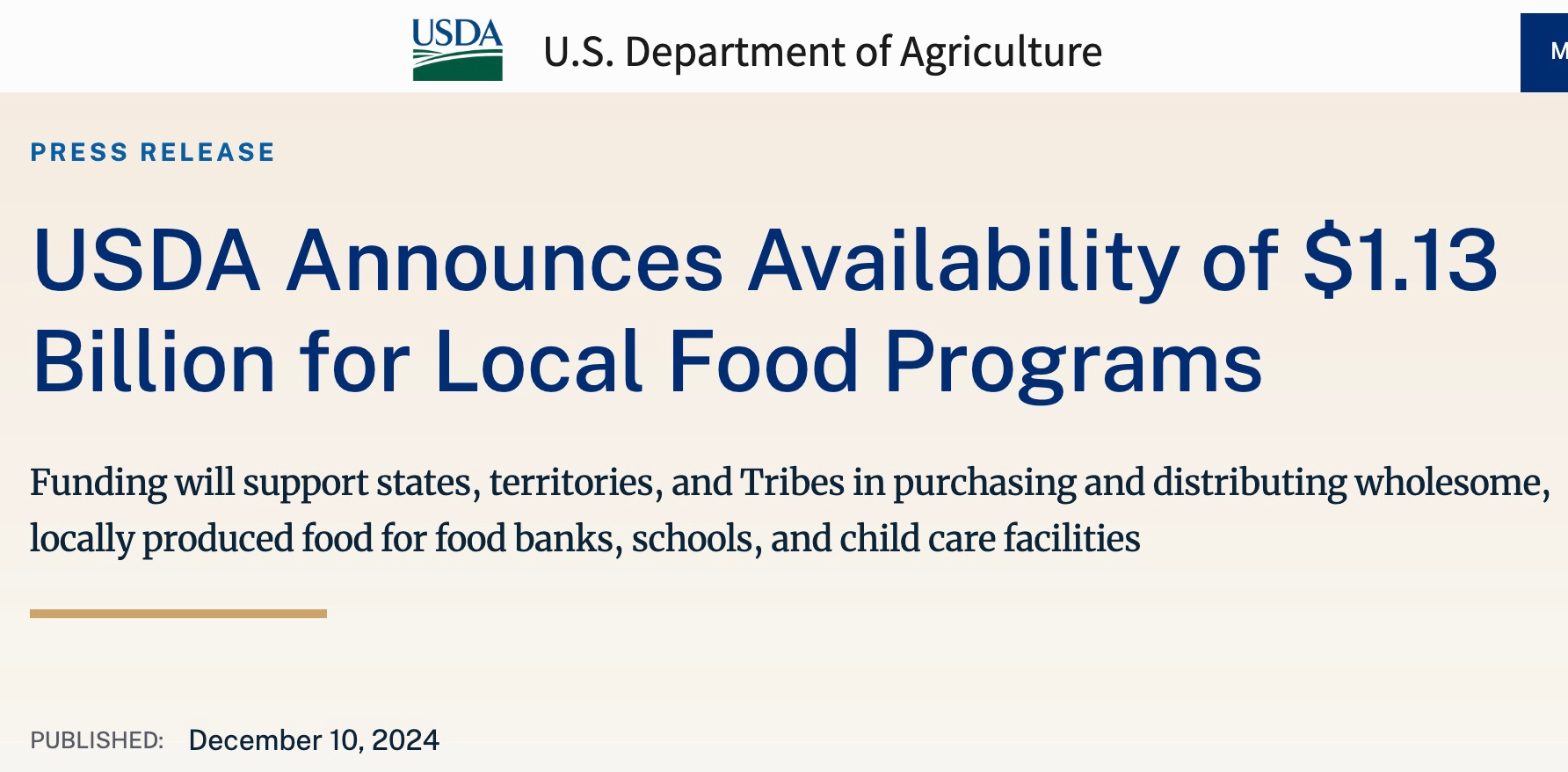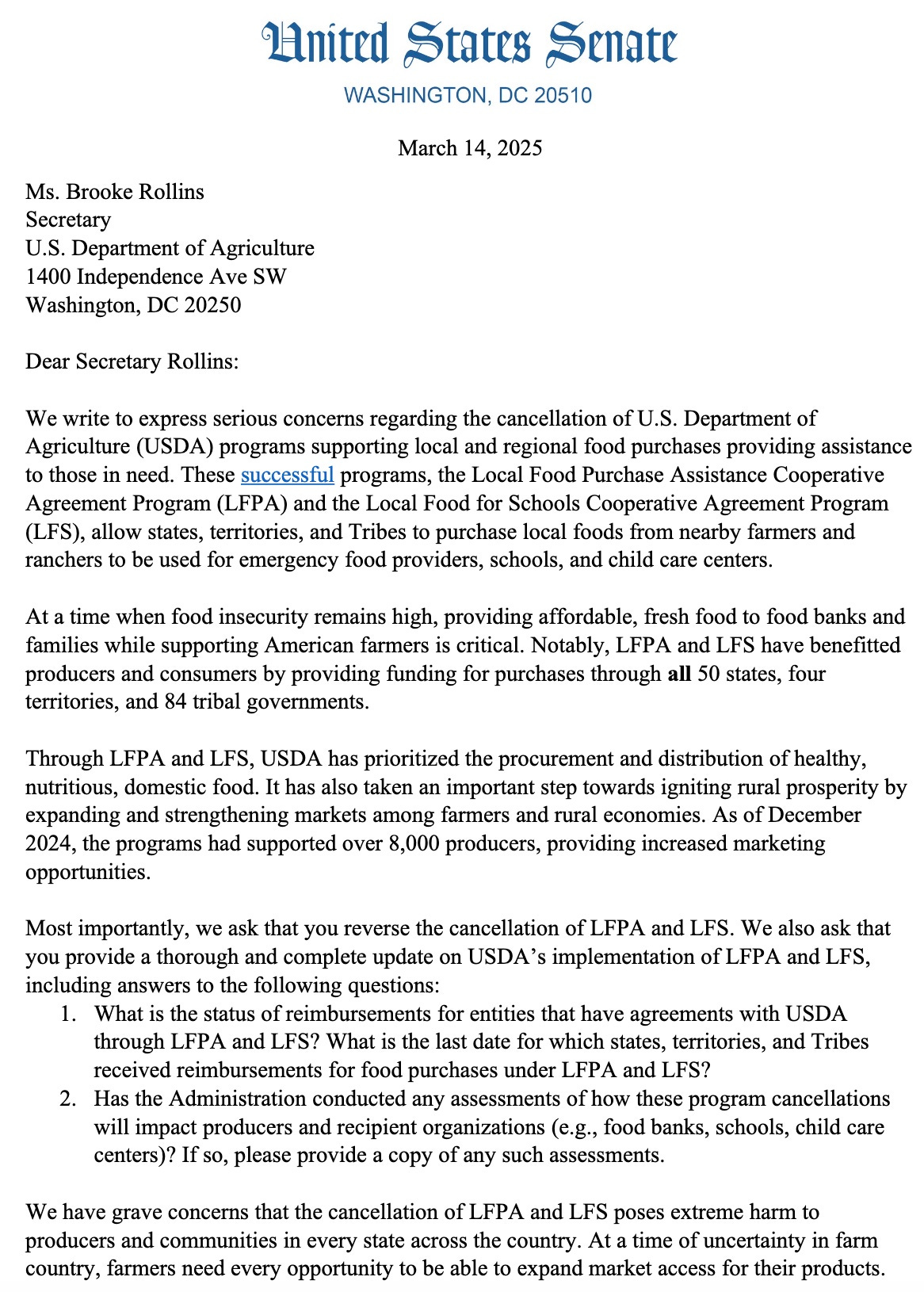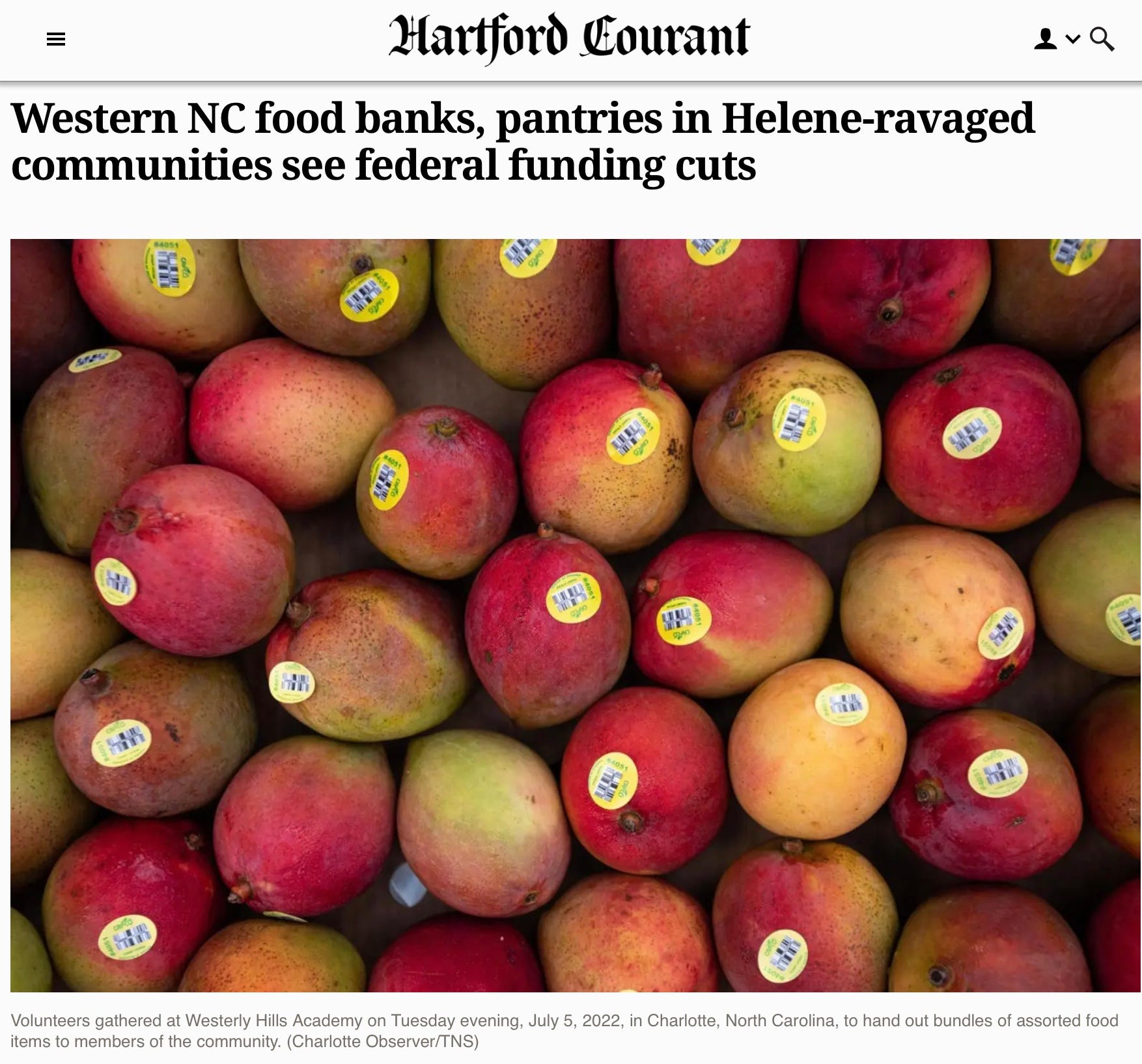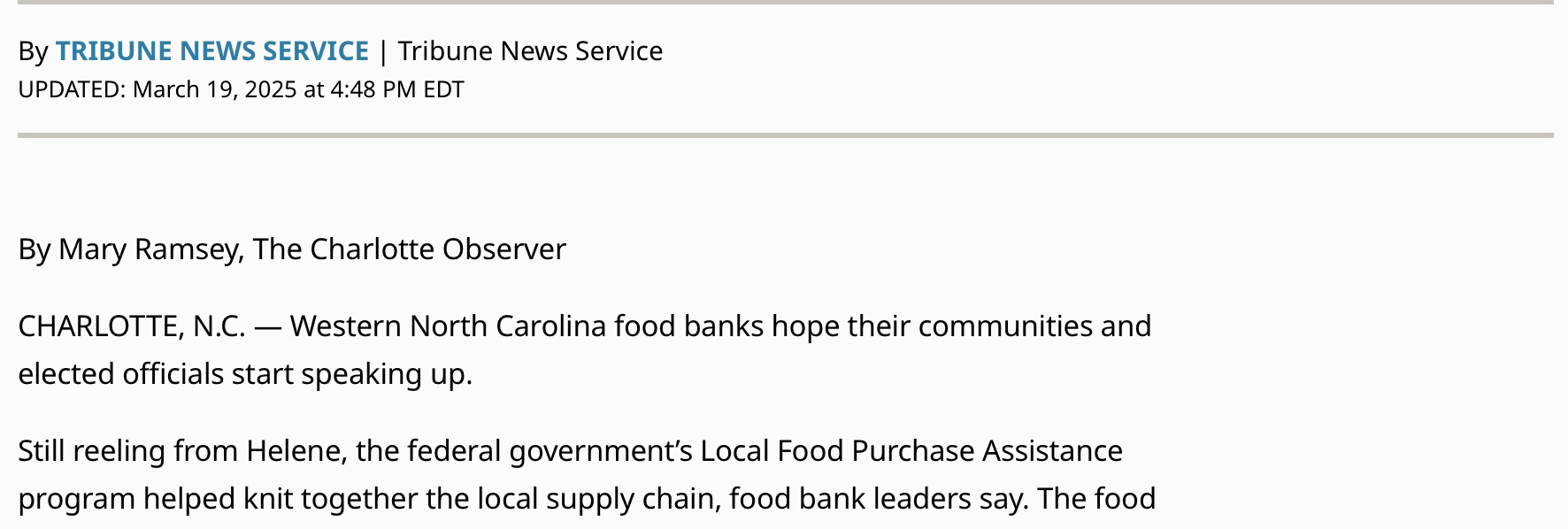Did the Biden administration create a poison pill by promising to fund a program to help *socially* disadvantaged farmers and recipients?
What was the administration thinking when it reissued a pandemic program just before leaving office, originally intended to respond to supply chain disruptions?
USDA recently cancelled a set of grants proposed by the Biden administration on December 10, 2024, on its way out the door.

No grants for this program were approved before Biden left office. No recipients had been chosen. But it had been announced, and potential recipients started counting their chickens before they were hatched.
Ongoing programs from earlier funding rounds were reassured they will continue to receive their funding.
Nonetheless, a storm of angry protests met the cancellation. Thirty-one US Senators wrote to USDA Secretary Rollins last Friday demanding answers to questions about the program and asking for reinstatement.

The School Nutrition Association somehow rounded up 800 nutritionists to come to Washington to complain about the end of the program.
The proposed programs might have been designed to encompass a huge constituency that would certainly protest upon cancellation. Funds were to go to every state, territory and tribe.
Beneficiaries of the Local Food for Schools program included school students, preschoolers, small farmers and food producers. But which farmers and producers? According to the program itself, the food was to be purchased from “socially disadvantaged” farmers or ranchers:
For the purpose of this program, “socially disadvantaged” is a farmer or rancher who is a member of a Socially Disadvantaged Group. A Socially Disadvantaged Group is a group whose members have been subject to discrimination on the basis of race, color, national origin, age, disability, and, where applicable, sex, marital status, familial status, parental status, religion, sexual orientation, genetic information, political beliefs, reprisal, or because all or a part of an individual’s income is derived from any public assistance program.
Money was to be doled out to states, which would then give sub grants to NGOs, for-profit companies and government agencies to find the socially disadvantaged farmers from whom to purchase food. The grants were non-competitive. One suspects, based on the above description of the farmers and the NGOs chosen to administer the grants, this was a giveaway primarily for supporters of the Democrat party, while also providing fresh food to schools.
The other program that was cancelled was the Local Food Purchase Assistance program. States would choose local organizations who would purchase food from the same socially disadvantaged farmers, but in this case the produce was to be given to socially disadvantaged recipients.
What is suspicious about these programs is the following:
- they were not designed for economically disadvantaged farmers and recipients, but socially disadvantaged people
- the awards were made non-competitively, inviting bias in awarding grants
- the awards came out of a slush fund at USDA (the Commodity Credit Corporation) that has become known for its use for political purposes. The money was not Congressionally authorized for its purpose
- The programs were initiated during the pandemic to compensate for food supply chain disruptions, and were not intended to continue beyond the pandemic
I am 110% in favor of any federal program that purchases fresh, local food for school-children and needy families. In fact, I think Congress should put a much bigger local fresh food program in the Farm Bill, where it will receive at least 5 years of reliable funding—so schools and other beneficiaries will know how much support they can count on, year to year. We all need to start eating healthier food, and consuming local produce and the products of local, pasture-raised animals will immediately move us in the right direction. A current program in which SNAP (food stamp) recipients can purchase fresh fruits and vegetables from farm stands, food co-ops and health food stores for half price using EBT cards should probably be expanded.
But promising another round of funding for the two quirky, DEI-based programs above, just as Biden was leaving office, with no effort to finalize the granting process, suggests to me that the Biden administration offered the funding round in hopes the Trump administration would cancel the program—in order to generate massive publicity and outrage. They certainly succeeded. And the negative publicity just keeps on coming.
Even Children’s Health Defense and the Organic Consumers Association joined the Associated Press, Newsweek, CBS News, The Hill and many other media outlets in complaining about the program cancellation, particularly in light of the MAHA agenda. “See! The Trump administration is full of hypocrites,” it was claimed.
In politics, nothing is ever what it seems—or how it is spun. But at least now you know the story behind this story.

